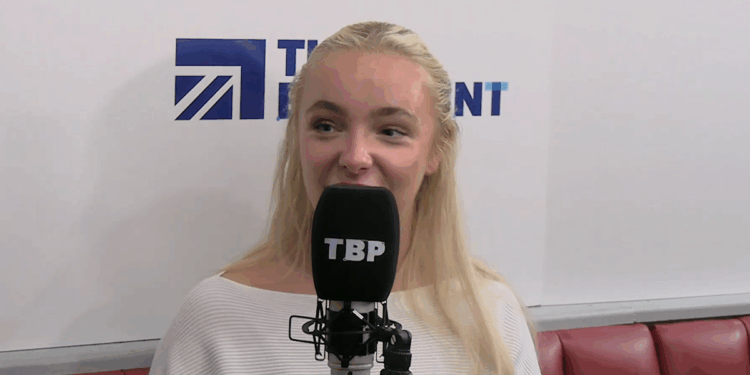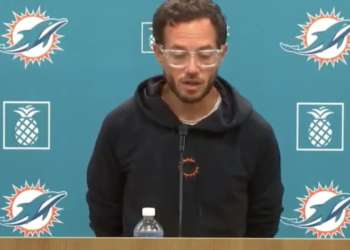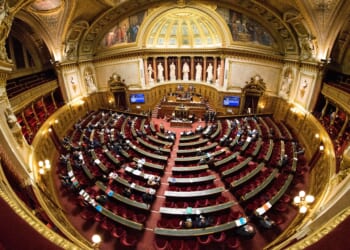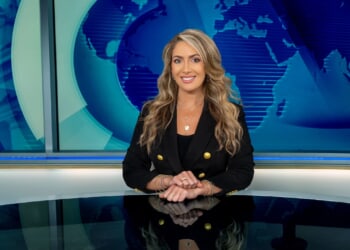Emily Hewertson is a Conservative campaigner, writer and commentator.
After months of auditions, the moment of my reality TV debut had finally arrived. The car door opened and I stepped out into the cool night air.
After three days quarantined alone in a hotel room, I was finally free. I could feel the energy of the crowd before I even saw them. Some were cheering, many reached out for high fives. But among the applause, there were booming boos too. Despite being the seventh contestant to face the crowd, they were the first boos of the night and, as I later realised, the only ones. That was when it hit me. I was living a real life pantomime, and I was the villain.
The famous Big Brother doors opened and I gave one last wave to the crowd in true pantomime style. The doors shut and suddenly it dawned on me that I was in the most iconic house on British television. I was met warmly by the other housemates with smiles and hugs. I felt safe knowing that, unlike the crowd, they had no idea who I was or, more importantly, what my political beliefs were. For the first time that evening, I could just be me.
Just as I was starting to settle in, the familiar voice of Big Brother demanded that housemates gather on the sofa. We were then met with the bombshell news that the public had been voting and someone would be leaving that night. As soon as I heard this, I knew my fate had been sealed.
Out of the ten minutes of content I had filmed for my introductory video, the producers had selected a one-minute clip of me talking almost entirely about the fact that I was a Tory. In a situation where the public were voting to evict, the biggest characters were always going to be more vulnerable than the meek and mild. My big personality and Tory credentials were, it turned out, a deadly combination.
The public’s bottom three, inevitably the three biggest personalities, then had to decide among ourselves who should go home. We were asked what we would do with the one hundred thousand pound prize money. This was my second downfall. I admittedly did not have a goodanswer because I was not there for the money. I was there to challenge the public’s perception of me, to show that a female Tory villain might, in fact, have a bit more to her.
My two fellow housemates gave polished, prepared answers. I stumbled, and that was that.
The irony is that I had always vowed never to do reality television because I was a Tory. I had previously turned down Love Island and a whole array of other offers. But when Big Brother came knocking, I perhaps naively believed this one would be different. After all, the whole premise of the show is about bringing together people with different opinions and perspectives.
However, I was not given a fighting chance. All the public had to go on was a one-minute clip, carefully crafted to make me out to be the Tory villain. I did not actually mind that persona, had I only been given the chance to counter it. In fact, in the two consecutive ITV series before, housemates Nathan and Henry, both openly Conservative, made the finals.
That proves that when people are given the chance, they can be humanised and even liked. Similarly, Nigel Farage and Matt Hancock bothcame third on recent series of I’m a Celebrity. I cannot help but note, however, that all of these examples are men. I do wonder whether being a woman made a difference.
Despite my record-breakingly short stint, I realised as soon as I left the house that I had certainly made an impact. Dozens of articles were written about me, and I had caused quite the social media storm. It was clear that I had received more online hate than any other housemate by a significant margin.
Friends flocked to check in, worried about how my mental health might deteriorate under the weight of the abuse. To their surprise, the hate left me largely unaffected.
As a Brexit-supporting, vocal Conservative woman, and a member of the party since the age of sixteen, this was hardly my first experience of public hostility. A few years ago, I even had a drink thrown over me simply because I was a Tory. Over time, I have learned to find the hate almost humorous.
The same keyboard warriors who promote #BeKind and pride themselves on tolerance are often the most spiteful, intolerant people in society.
Statistically speaking, it is highly likely that they know and love someone who votes for a right-wing party, in the same way that I have friends from across the political spectrum, including my proudly Labour-voting father. Yet I have seen lifelong friendships crumble the moment my political affiliation is revealed. For years they have believed that I was a good person, worthy of friendship.
However, the moment they discover how I vote, they suddenly see me as someone they cannot understand or relate to. I would much rather live in a society that judges people by how they treat others, not by how they vote at the ballot box.
Being a Tory, or anything else, should not preclude basic respect. My brief stint as a Big Brother housemate demonstrates how quickly people reduce others to a single label. The real measure of a healthy society is not whether it agrees with us, but whether it can recognise and respect the full person, even when it disagrees.
That is the real challenge.










![Keith Ellison Caught Promising to Fight State Agencies for Somali Fraudsters [WATCH]](https://www.right2024.com/wp-content/uploads/2026/01/Keith-Ellison-Caught-Promising-to-Fight-State-Agencies-for-Somali-350x250.jpg)






